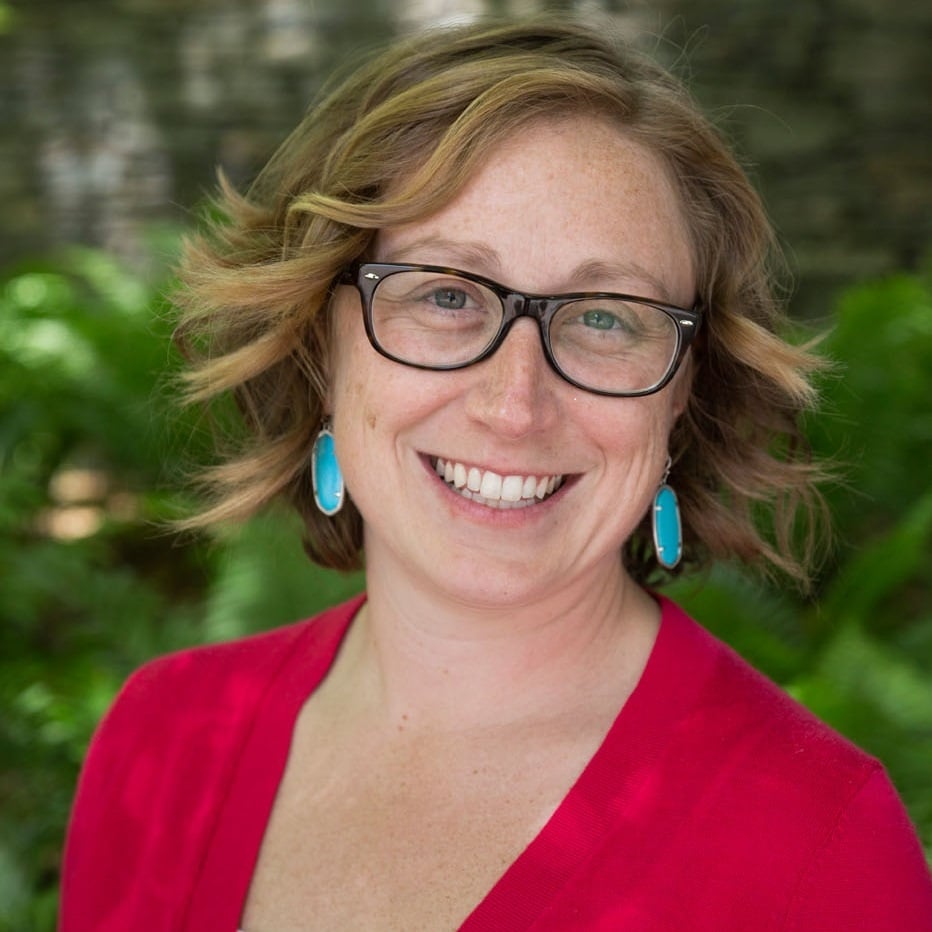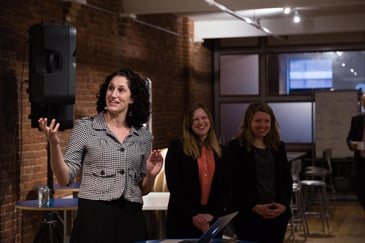The MBA Choice, Part I: How Bard’s Low-Residency Model Encourages Community and Deep Learning

This blog series will highlight the many advantages of Bard’s unique low-residency approach to getting an MBA. Prepare to hear in installments about how our approach improves your learning, strengthens your network, uses advanced technology and allows you to continue your professional life while in school.
When we set up Bard’s MBA in Sustainability, we utilized the latest way to organize a skills-based graduate program: a “low-residency” structure, also known as a “hybrid” or “one weekend a month + online” model. It has been the best choice for preparing our students with the business and sustainability skills they need to change the future.
Not sure how to choose an MBA program that fits your lifestyle? Low-residency models sit in between conventional educational models on the one hand, and strictly online programs on the other. Conventional MBAs include the go-somewhere-for-two-years and take classes approach, as well as night school or every weekend programs that are entirely face-to-face. By contrast, in Bard’s low-residency structure, classes meet in person over an extended, four-day weekend once each month. There are five of these “residencies” over the course of each semester. The weekend residencies are supplemented by online webinar classes every Tuesday and Thursday night from 7 PM to 10 PM.
There are three clear ways that Bard’s low-residency approach to an MBA in Sustainability encourages community and network building and allows for deep learning.
“Retreat” Structure Equals Stickier Learning
The one-weekend-a-month residencies, held just off Wall Street in New York City, are intense: 40 hours of classes and activities, beginning at 9 AM on Friday, and ending at 4 PM on Monday. But surprisingly, the very intensity of the program is a big part of its success. You can think of the Bard MBA as twenty, four-day retreats spread out over two years, and tied together by the weekly online classes. This kind of retreat experience is actually a very powerful learning environment. Our students and faculty are intently together for four days, with the rest of the world shut out. Classes are long enough that students can work in teams, experience a flow of terrific guest speakers, and make connections across classes. Our assessment to date is that the heightened emotional focus generated by the retreat experience makes the hybrid approach a stickier way to learn business plus sustainability than a conventional classroom approach allows.
Powerful Community
Imagine spending twenty, four day-weekends working closely with a few dozen talented and committed people who shared your dreams and passions to build a sustainable future. What kind of community would you create? This is what happens at the Bard MBA. Because of its intensity, the low residency structure force-feeds community building. This makes the program a huge amount of fun. More importantly, it exposes students to a constant blizzard of ideas, directions, experiments, conversations, pivots, failures, and successes—both business and personal--experienced by their fellow students.
Some say that 90% of the learning in any graduate program comes from peer-to-peer interaction. This kind of close and rich community experience is the key element missing from strictly online or limited residency programs.
Networks, networks, networks
Bard MBA graduates work in four areas: as entrepreneurs; in sustainability roles in companies and non-profits; as sustainability consultants; and in traditional business roles in mission driven companies. Finding a career in the sustainability space requires that each student build a strong professional network. This network starts with the close connections formed in residencies with fellow students and faculty and alums. It grows with the constant flow of sustainability professionals who visit the program as guest lecturers, and the opportunity to work face-to-face with clients in our NYCLab consulting program, and through capstone projects.
To learn more about our MBA Low Residency program, visit our webpage.
Bard’s MBA is an important hub in the sustainable business world in one of the most vibrant sustainable cities on the planet. Students grow their networks out of that hub, and are connected to it through their twenty (or thirty) weekend retreats.
To sum it up, Bard’s low-residency approach allows for deep learning, powerful community, and natural networking that leads to career opportunities. It's one of the many reasons that Bard is one of the top sustainability MBA programs in the world. Stay tuned for next week’s post to hear more about how Bard’s low-residency approach to an MBA in Sustainability beats out conventional and online approaches.





